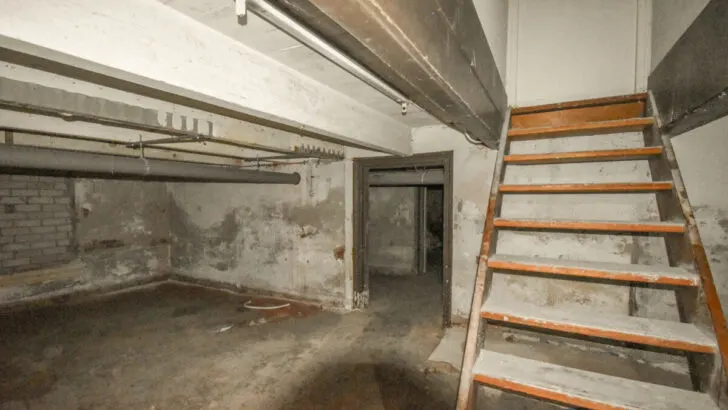Typically, even though basements aren’t always in use, if you have insulated and finished it properly, you can create a truly relaxing and homey space down there.
It could even house a hot tub or could be used for making a cozy room where you escape from reality.
So, rather than just considering it as a storage space, laundry area, or structural support, you can make use of it quite nicely.
Basement walls don’t always need insulation, but if you intend to fully finish your basement so you and your family can spend time down there, it’s a good idea to install some. It can also help with your energy costs!
Apart from the reason to make it into a useful space, there are other reasons why you should insulate the walls of the basement.
Should Finished Basement Walls Be Insulated?
If you have a finished basement, it’s almost necessary to have insulated walls. It adds to the comfort of the space and also saves money.
For further clarity, here are the reasons basement insulation can help you:
1. Help Give the Basement a Finishing Touch
Many people don’t even invest in painting basement walls. They might feel that it is an extra storage space that doesn’t need any resource wastage.
Also, mold and mildew growth in the basement walls is quite common. So, people might feel that if they paint the basement walls or add wallpaper, it will be of no use since it will get ruined because of the micro-organism.
Waterproofing and insulating a basement prevents the walls from growing mold and fungi. Also, you can style the basement with some colors and wallpaper to make it look like a finished room.
2. Electricity Savings
Although concrete blocks or poured concrete are very sturdy when it comes to laying the foundation of a house, they are bad insulators.
The uninsulated walls mean that the cold can get in the house through the ground. This cold can pass to the ground level above. Therefore, the heating systems must work extra hard to keep your house warm.
In the summer, the basement walls let the heat in. If your basement has air conditioning, it must work extra hard to keep the heat out.
So, if you want to convert your basement to a useful space and direct your air conditioning and heating system there, you need to get the walls insulated.
This will save up on electricity costs as well as maintenance costs of the HVAC system because of the increased workload on the system.
3. Keep the Moisture Out
Since basements are surrounded by earthy soil, hydrostatic pressure is exerted from all sides. This might cause the walls to crack and make way for the water and moisture to get in. If you live in an area where it rains a lot, your basement is highly susceptible to mold and fungal growth.
Insulation is the best way to keep the mold out. This is because it regulates the temperature and moisture levels of the house.
When combined with waterproofing, it can help keep out moisture. You only need a ventilation system like a dehumidifier in the basement to make it smell fresh and not moldy and stale.
Do I Need to Insulate Below-Grade Basement Walls?
While it is not required by the law, it is a good idea to insulate your low-grade basement walls. Because as mentioned above, it helps reduce electricity costs and makes it useful for tasks other than storage and laundry.
You can choose fiberglass, spray foam, and foam board as your insulators. Also, you don’t just need to insulate the basement walls. You can also insulate the basement ceiling and the floor.
Examples When You Shouldn’t Insulate Your Basement
It is suggested that you do insulate your basement for the reasons listed above. However, there might be instances when you shouldn’t insulate your basement. These can include:
Plumbing Leak
If you have a water leak or if your basement is not completely dry, you will need to put off the insulation till it is dry and the plumbing leak is fixed.
Your Wall System Has Polyethylene
If you have a waterproofing system that has used polyethylene, you should not add an insulation layer. This is because polyethylene between the wall and the insulation can cause the moisture to get trapped which leads to rotting of the wood and mold and fungal growth.
Do You Need to Insulate Concrete Walls?
Concrete is extremely porous. So even if it is a great material for providing structural support, it can let in moisture, cold, and heat from outside. It needs to be insulated to save up on electricity costs.
Here are the suggestions for house and basement concrete wall insulation:
Concrete Basement Walls
The best way to insulate the basement is from outside. However, if you are not building your house from scratch and still want to insulate the concrete walls, you can insulate it from the inside.

But unless you live in an area that has low moisture potential, you should go for partway insulation and not inside insulation.
The part-way insulation is done from the outside. It requires digging a deep trench and inserting rigid foam to insulate the wall.
Concrete House Walls
Concrete house walls should be insulated since they let in the cold and the heat from outside. It causes the HVAC system to work extra hard to keep the temperature of the house regulated.
Summing Up Insulating Your Basement
Your basement walls are susceptible to mold growth. Therefore, insulating them is a great idea to keep the moisture out.
However, there are some circumstances under which insulation is not recommended for the basement.
If your house is in a high moisture density area, your wall has a plumbing leak, and your wall system has polyethylene, then insulation will do more harm than good.
Apart from this, when you insulate the basement wall, it helps save up energy costs and also makes your basement look presentable.
So, you can use it as a home theater for your family or just an escapade from the house chaos rather than just a musty-smelling storage space or a laundry room.


